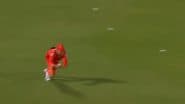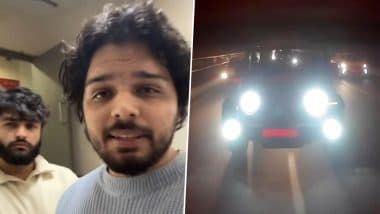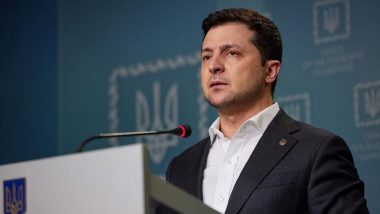Strasbourg (France), Nov 15 (AFP) Europe's top rights court condemned Russia on Thursday over a series of arrests of the outspoken Kremlin critic Alexei Navalny, calling them "politically motivated" attempts to curtail opposition to President Vladimir Putin's government.
Judges at the European Court of Human Rights in Strasbourg said seven arrests between 2012 and 2014 had violated Navalny's rights to security, a fair trial and the freedom of assembly.
Each time the anti-corruption campaigner was detained and later convicted of either breaching procedures for holding public demonstrations or disobeying a police order.
In two of the arrests, the court ruled that "they had actually aimed at suppressing political pluralism".
"It is a very clear judgment," Navalny said after the ruling in Strasbourg, where he managed to arrive Wednesday after Russian border guards prevented him from flying out of Moscow the day before.
The agents said he could not leave until he paid a fine of 2.1 million rubles (28,000 euros, $31,600) connected to a 2013 conviction.
"The European court recognises that it was a politically motivated arrest and persecution," Navalny said.
"It was very important not just for me but for many people all over Russia who are arrested every day." The court ordered Russia to pay Navalny 50,000 euros ($56,000) in damages, as well as 1,025 euros in financial compensation and 12,653 euros for costs and expenses.
But Navalny said he did not expect the Russian government to hand over the money.
"It is going to ignore the ruling and say the European justice system is politically motivated... That is the Russian government's standard response," he said.
The court had already condemned Russia last year over the arrests, but rejected Navalny's claim they were politically motivated.
That prompted a rare appeal by both Navalny and the Russian authorities.
In its ruling Thursday, the court called on Russia "to provide a legal mechanism for the authorities to take due regard of the fundamental importance of the right to peaceful assembly and show the necessary tolerance for unauthorised, peaceful gatherings." Navalny, a 42-year-old Yale-educated lawyer, has for years investigated suspected corruption by top officials, at times making allegations which have drawn thousands of people into the streets.
He came to prominence as an organiser of huge anti-Putin rallies that shook Russia in 2011 and 2012 following accusations of vote-rigging in parliamentary polls that restored Putin to the presidency.
His anti-corruption rhetoric is especially popular with younger people who follow his online channels and blogs.
But Putin has shown no appetite for opposition, and Navalny has repeatedly been arrested -- last month he was released from back-to-back sentences for organising demonstrations.
From 2013 to 2017 he was prohibited from leaving Russia, as authorities refused to issue him a passport because of the legal cases.
He was eventually allowed to leave the country in May last year to seek treatment in Spain for damage to his eye after an unknown assailant threw green dye in his face in Moscow.
But he was barred from running against Putin in presidential elections last March, prompting him to call for a boycott of a vote which returned the Russian leader to power with 76 percent of the vote.
Since then his 17-year-old daughter, Daria, has launched her own YouTube show called "Voice of My Generation". (AFP) CPS
(This is an unedited and auto-generated story from Syndicated News feed, LatestLY Staff may not have modified or edited the content body)













 Quickly
Quickly





















